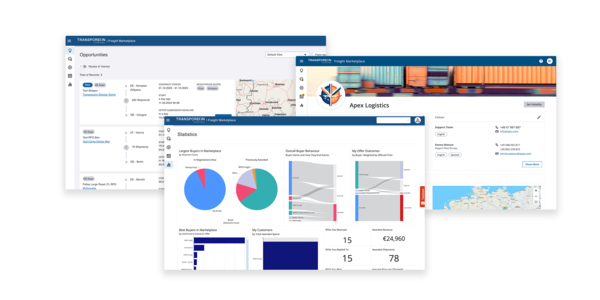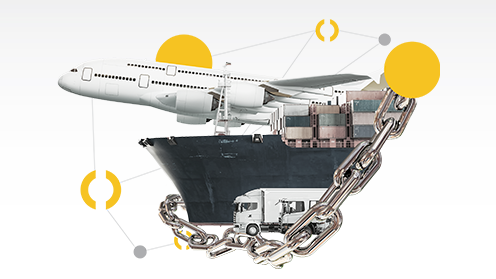Imagine a bustling stock exchange where buyers and sellers seamlessly converge to discover the best prices and find their ideal counterparts. A place where transparency and fairness reign, ensuring reliable deals every time. Now, let's move our attention to the intricate world of logistics, freight procurement and carrier sales, where the quest for dependable partners and equitable agreements can feel like a labyrinthine challenge. This is the puzzle we set out to unravel with our groundbreaking innovation - Freight Marketplace.
Navigating the logistics landscape
In the logistics industry, the intricate issue of aligning capacity and securing equitable prices often resembles a complex puzzle. A scarcity of visibility into potential buyers and sellers becomes a roadblock, leaving shippers grappling to identify the right sellers and operators across their diverse network. Smaller shippers face their own struggle, wrestling with limited procurement resources that impede fair price negotiations. At the same time, larger logistics providers are flooded with incoming RFQs, but miss out on truly compatible partnerships. On the flip side, smaller providers find it challenging to showcase their prowess to the perfect customers due to budget constraints, marketing limitations, and resource scarcity.
The imbalance in logistics procurement tools
Currently, logistics procurement tools predominantly cater to buyers, inadvertently leaving sellers at a disadvantage. These tools often rely on outdated processes, such as sharing PDF and Excel rate tables via email. This archaic approach results in inefficiencies, manual labour, and a dearth of actionable insights from the data. This absence of structured data compounds the difficulty of effective analysis and response. Moreover, the rapidly changing dynamics of the logistics realm call for heightened flexibility and responsiveness, a call that the traditional methods are ill-equipped to answer.
Breaking down the shortcomings
Existing solutions have various shortcomings:
- Fixed negotiation cycles lack adaptability in response to market fluctuations.
- Standard tendering tools skew towards buyers, paying little attention to carrier usability
- Using PDFs and Excel attachments to store data hampers carriers from efficiently responding to RFQs and shippers from effective data analysis.
- Negotiations tend to be one-dimensional, focusing solely on price while sidelining factors like lead-time and CO2 emissions. This can lead to suboptimal partnerships.
A vision for seamless logistics management
The logistics industry is long overdue a solution that mirrors the simplicity and reliability of stock exchanges. The perfect answer would be a platform where buyers and sellers of capacity can find the best counterparty. This centralised platform would enable logistics providers to exhibit their prowess, services and fleet data, while shippers select partners tailored to their needs. Rooted in data science, the solution would be capable of automating processes, comparing offers to market rates, and ensuring commitments are met. In this era of environmental consciousness, it's essential that such a solution also integrates emissions considerations into procurement decisions.
Presenting Freight Marketplace: where the vision becomes a reality
We proudly introduce Freight Marketplace, a revolutionary deal-making infrastructure that defies the conventions of traditional procurement tools. Thanks to its neutral and active gateway, this platform is designed to serve both buyers and sellers of capacity, delivering value for all parties. Freight Marketplace establishes a transparent, data-driven, and sustainable terrain for shippers and carriers alike. An ecosystem to connect, negotiate and discover the ideal partners that fuel success.
Unveiling Freight Marketplace's core value propositions
- Adaptive and flexibile: Embrace the future with flexible sourcing options and data-driven decision-making, ensuring a resilient supply chain.
- Eye-catching profiles: Logistics providers showcase their prowess, services and fleet data while shippers pinpoint their perfect partners.
- Holistic negotiations: Engage in multi-dimensional discussions based on price, volume, lead-time, pickup date, CO2 emissions and carrier quality profiles.
- Green embrace: Place sustainability at the heart of your operations. Integrate emissions considerations into your procurement decisions, empowering conscious choices and showcasing environmental initiatives.








